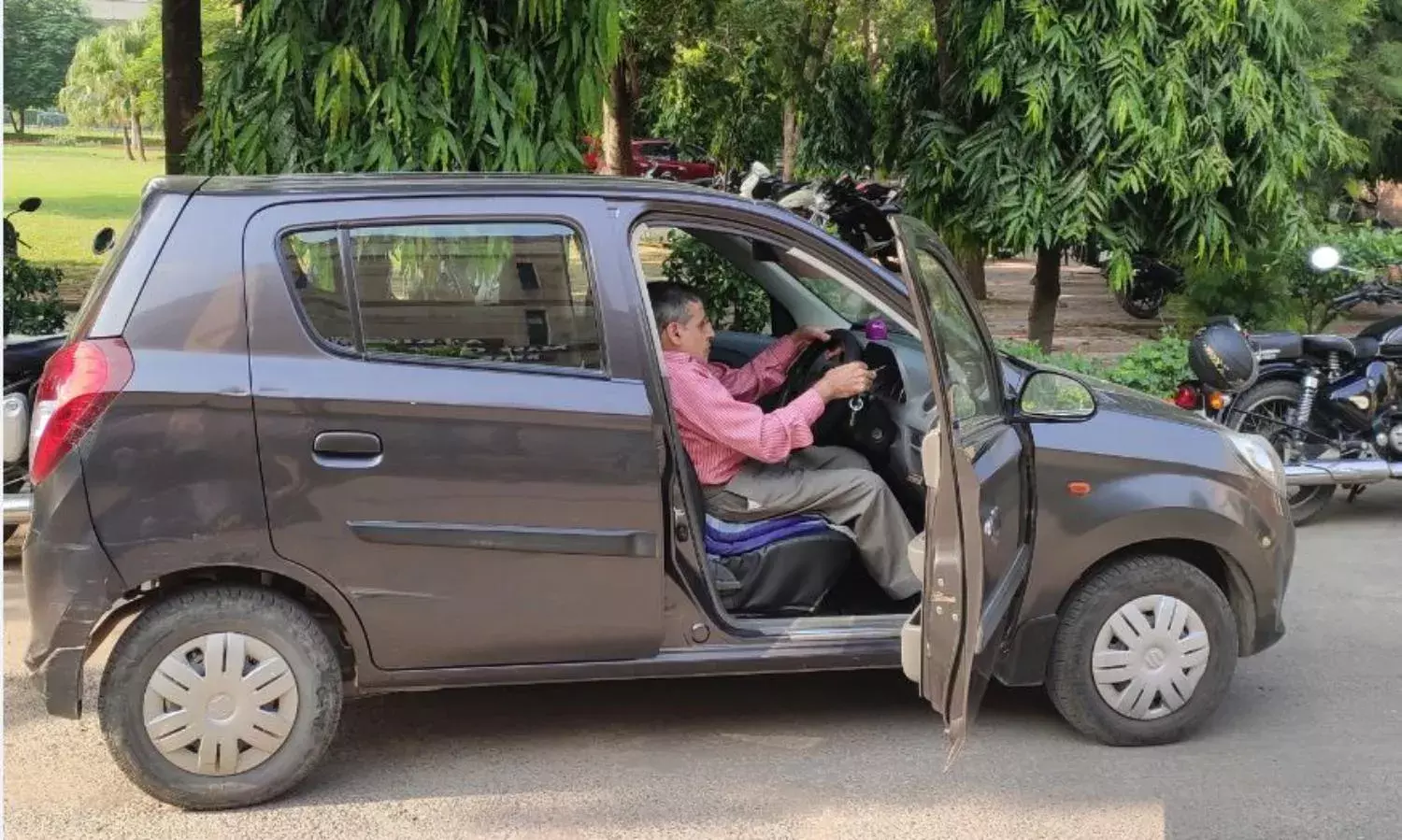Officials Refuse Driver's Licences to Specially Abled People, Despite Changes to the Law
Little respite for the specially abled despite the new Motor Vehicles Act

NEW DELHI: Despite the recent amendments made by Parliament to the Motor Vehicles Act, people with disabilities continue to struggle to get their driving licences from the Regional Transport Office.
Sudhir Bhatnagar, 37, lost motor abilities below his spine in an accident in 2011. Before the accident, he had a valid driver's licence. However, when he approached the RTO in Noida to get his licence renewed, officials refused to renew it.
“I repeatedly approached them, for months, and they eventually said there were no particular guidelines for providing a driving license to persons with disabilities. I showed them my old driving licence, but they refused to renew it,” Bhatnagar said.
The Motor Vehicle Amendment Bill of 2019, which was proposed by Union Minister of Road Transport and Highways Nitin Gadkari and passed by the Lok Sabha last July, enables licensing authorities to issue licences to differently abled people.
It also seeks to enable the conversion of a motor vehicle into an adapted vehicle to be used by persons with disabilities. The modified vehicle must be approved by the concerned RTO to ensure it meets safety and emission requirements.
Once the adapted vehicle is approved, you can apply for a driver's licence by submitting a disability certificate along with your application.
As per current guidelines differently abled people are required to pass both written and practical tests to obtain a driver’s licence.
In 2016 the central government had said that “if a person with any disability passes all tests, he/she must be issued a licence.” The Rights of Persons with Disabilities Act of 2016 clearly states that they must be included in driving formalities but provides no formal guidelines.
According to Nipun Malhotra, co-founder and CEO of the Nipun Foundation which works in the area of health and advocacy for persons with disabilities, “Despite an order by the Delhi High Court that allows deaf people to appear for a driving test, the deaf community has been denied licences. Licence-issuing authorities must be sensitised so that people with disabilities can get their licences easily,” he said.
Zafar Kidwai recalls his insulting treatment at an RTO. An assistant engineer at Jamia Millia Islamia, Kidwai suffers from locomotor disorder. When he approached the RTO to get a driver’s licence, a senior officer humiliated him saying, “People like you are a burden on society.”
Devastated, he went into depression and became suicidal.
“For a very long time now, I am the victim of this system. I tried hard to get a licence through proper channels, but everyone wants some bribe. On different occasions, RTO officials assured me, we will provide you with a licence, but the end result is the same,” said Kidwai.
With more awareness, the amendment to the Motor Vehicles Act will help the specially abled to get driving licences more easily.
Earlier there was a dilemma: the PWD had first to buy the vehicle, and only then could the RTO provide a licence. “Now with the changes in the law, specially abled people can easily get a licence even before buying the vehicle,” said Piyush Jain, Director at the Union Ministry of Road Transport and Highways.
The amendments to the law should provide a sigh of relief for the specially abled, provided the rules are implemented properly.


